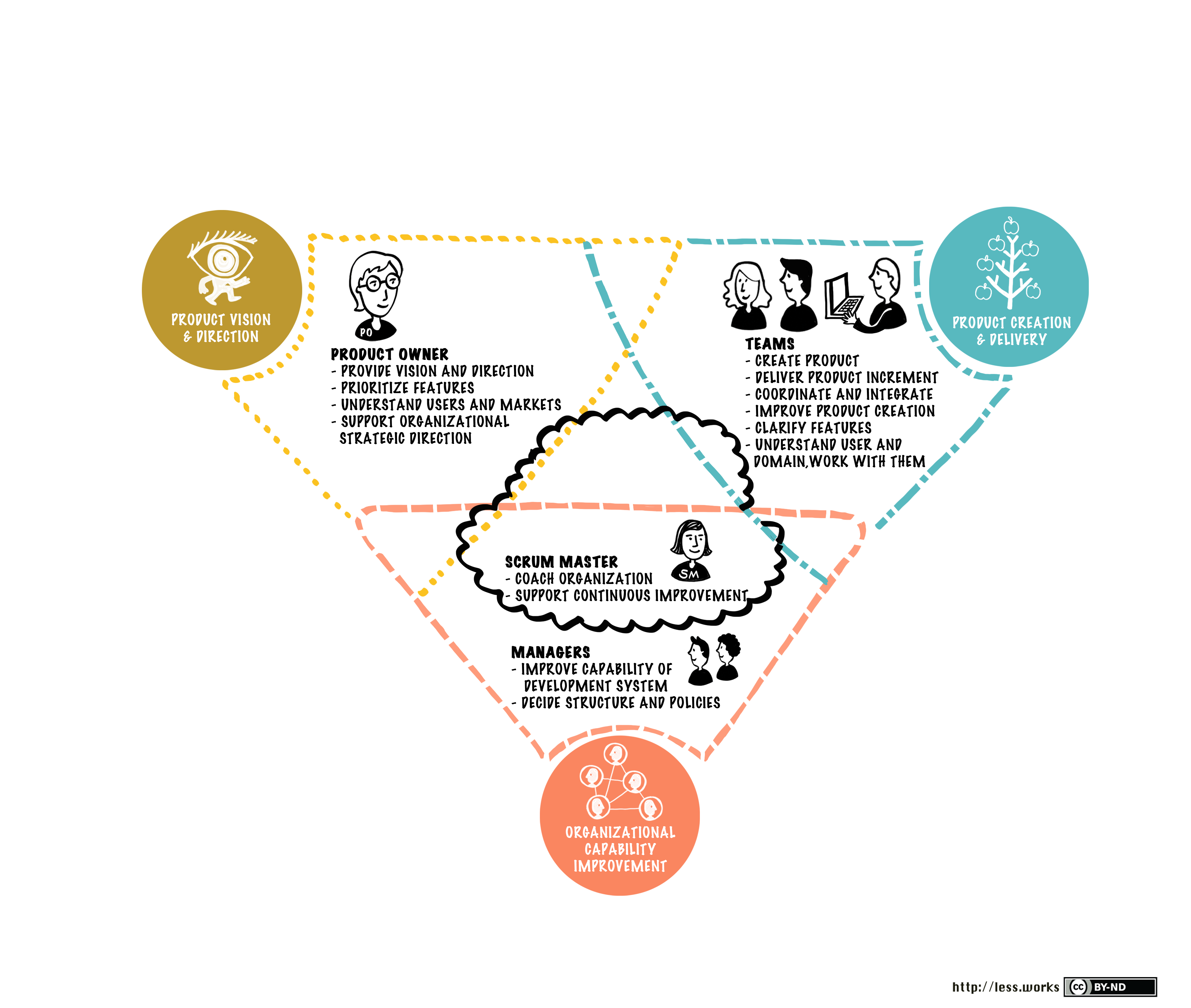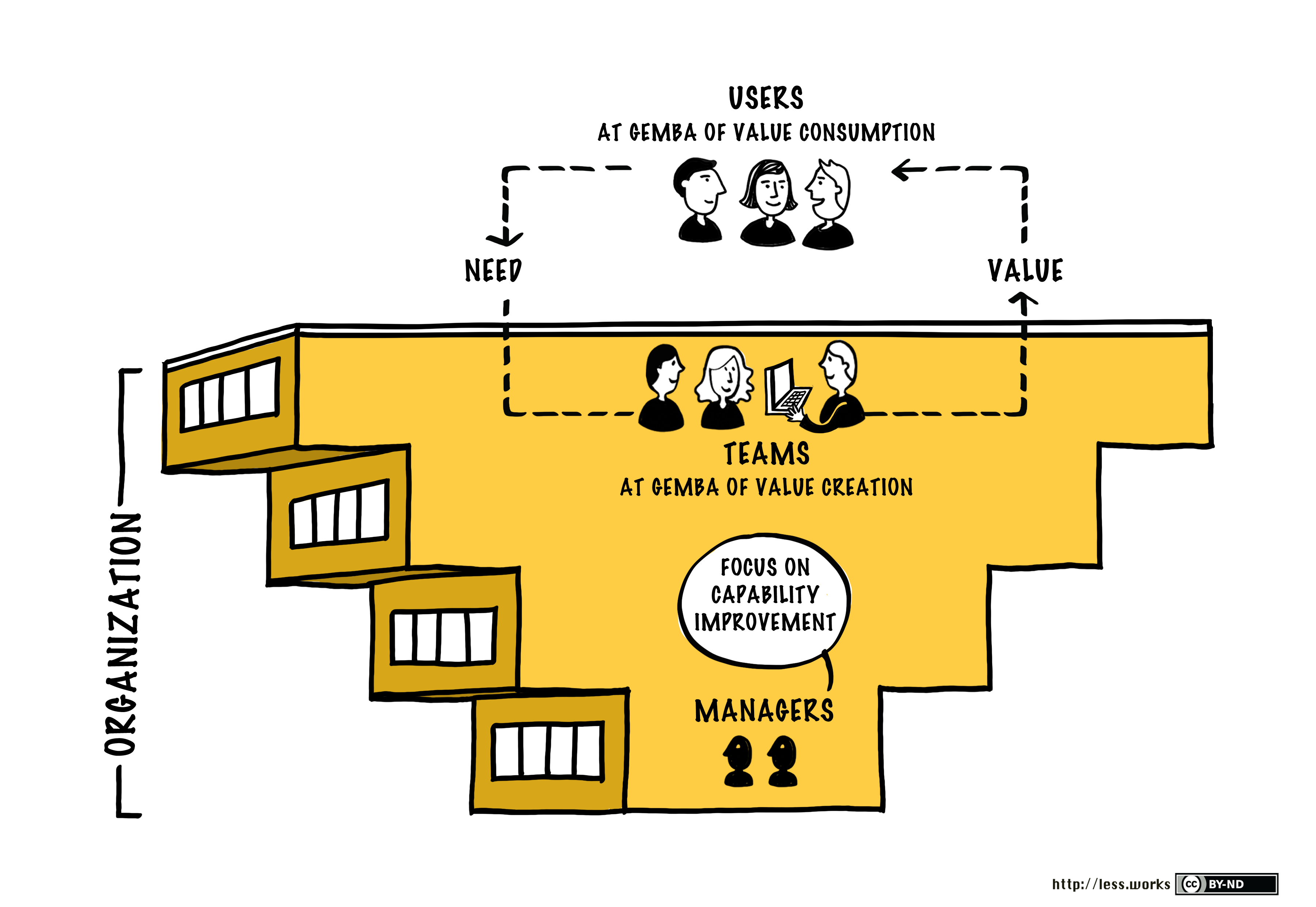Role of Manager
The role of the manager changes significantly for most organizations that are adopting Scrum. Traditionally managers are often involved in deciding what the actual work is and involved in deciding how to do it.
What to do -> Product Owner
The decision of what the team is working on is not anymore within the control of the manager but instead is decided by the Product Owner. She has the overview of the product and what is most valuable for the customers and she prioritizes the work that the team will pick up.
The manager has no role to play in this and should resist doing so.
How to work -> Team
The decision on how the team should work is delegated to the team. The team is a self-managing team and together needs to reflect on what is to be done and decide how they are going to do that and how they are going to improve.
The below diagram shows these responsibilities:
Managers as capability builders
So, considering the above, what is the role of managers?
The role of middle management is to see the whole and build the capability of the organization to build great products. He should help team and Scrum Master with removing obstacles and making improvements. He should teach the team how to improve and solve problems. He should Go See to understand what is really going on in the place of work and see how he can best help the team improve their work.
The role of senior management is perhaps changed less as they are still involved with strategic decisions related to the company and its products. That said, also senior management’s role is teaching people—his subordinates—how to teach people. He also needs to help his subordinates in problem solving and getting better at improving development.
Another way of looking at this is the value flows ‘horizontally’ through the organization—directly to the team without interference of managers, whereas the capability in built ‘vertically’ (see Figure 1).
Recommended Reading
- Fifth Discipline—Peter Senge
The classic on creating learning organizations and on systems thinking. An absolute must for managers to learn systems thinking - Lean Manager and Lead with Respect — Michael and Freddy Balle
Both these books are in business novel form and follow a student of lean management (Andy) who needs to make the jump from traditional management to lean management. - Workplace Management
Taiichi Ohno is the original creator of the Toyota Production System and his Workplace Management a classic in lean thinking and lean management. - Future of Management—Gary Hamel
Do we need managers at all? Gary Hamel does think so, but the management style of the future is definitively going to change. - Reinventing Organizations—Frederic Laloux
Do we really need managers? Frederic Laloux explores existing companies that operator on completely different principles. They take the ideas of self-management and base the whole company on it. You don’t have to take it as far as the researched organization, but it definitively shows what is possible.
As a manager, we’d recommend to also check the recommened readings for Scrum Master


